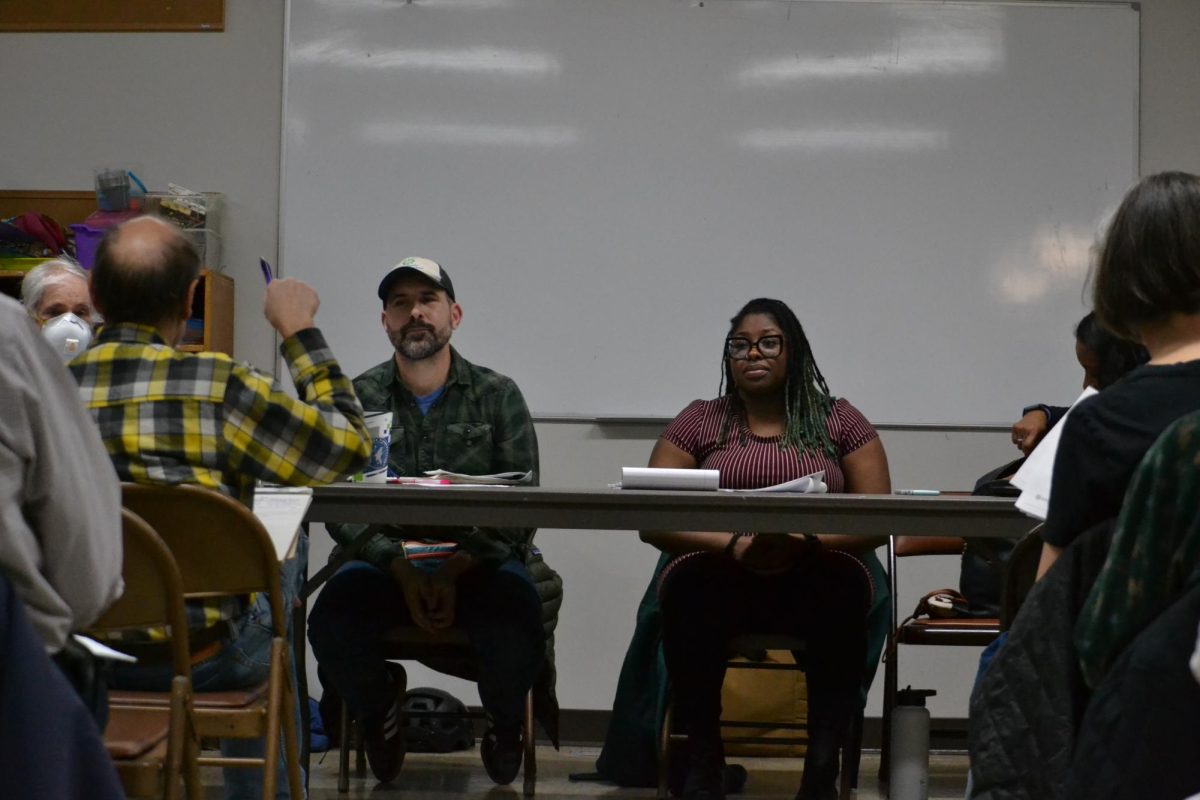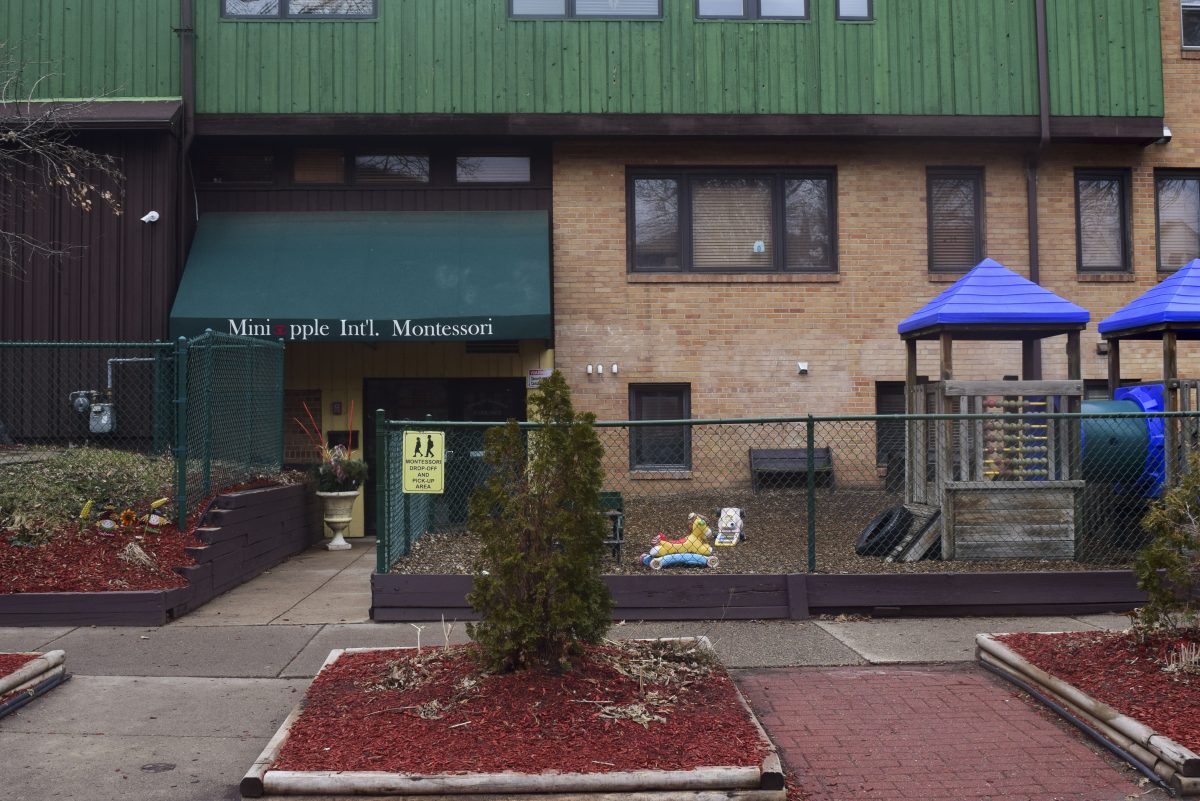The Southeast Como community pulled out their gloves, bags and trash grabbers under Sunday’s cool spring weather to pick up litter and beautify the neighborhood.
The effort was part of the Southeast Como Improvement Association (SECIA)’s annual Earth Day Cleanup event, one of many Earth Day celebrations held in Minneapolis over the weekend.
The Minneapolis Park and Recreation Board ran cleanup events at more than 40 locations throughout the city and the Great River Coalition held their ninth annual Earth Day Bee 5K in Boom Island Park.
Gregory Gallenberger, SECIA’s communications intern who coordinated Sunday’s cleanup, said the event is an easy, non-committal way to involve community members in neighborhood activities while taking care of their environment.
“It’s a good window for people to get involved with the community that they live in, and also to get involved with sustainability and a green thumb because it is often kind of something that is unfortunately pushed to the side in terms of convenience and timing,” Gallenberger said.
Jessica Hellmann, a University of Minnesota ecology professor, said while it only happens one day a year, Earth Day is a worthwhile opportunity for people to engage with the environment.
“If a significant number of people use Earth Day as an opportunity to learn something new or to reconnect with nature or to express gratitude or commitment that is carried forward other days, then it is most definitely worth it,” Hellmann said.
Hellmann said the Twin Cities has done a good job of providing citizens opportunities to access nature by prioritizing the maintenance of parks, lakes and the Mississippi River.
At the state level, Gov. Tim Walz (DFL) signed a bill into law in early 2023 aiming to bring Minnesota to 100% clean energy by 2040.
For the University, a new Climate Action Plan (CAP) is underway, aiming to make the University carbon neutral by 2050 or earlier, according to University Sustainability Coordinator Carley Rice. The University created its first action plan, which lasted over a decade helping to reduce carbon emissions, in 2011.
CAP identifies ways to eliminate greenhouse gas emissions and address climate change through outreach, research and teaching, according to the sustainability website.
In addition to CAP, various branches of the University are working to change the school’s climate impact, like the University’s Assistant Director of Landcare Tom Ritzer.
Ritzer said the University recently received the Tree Campus Higher Education designation in 2024 to promote reforestation and urban forestry.
“One of the main things [the designation] shows is our dedication to urban forestry and using best practices to care for the trees on campus,” said Landcare Supervisor Elliot Redmann.
Redmann said the forest natural resource management class is planning an Arbor Day event as one of their final projects. Eight trees will be planted at the Child Development Lab School in collaboration with Landcare and students from the lab school.
Nick Kluge, University waste recovery services assistant director, said recycling takes up fewer man hours and natural resources than manufacturing products from scratch.
“Recycling takes a lot less energy, a lot less materials, a lot less natural resources to recycle a product into another product than it does to create it from virgin material,” Kluge said.
Kluge said students can expect to see a few seasonal initiatives in their dorms, such as the Pack and Give Back program, in which large boxes are put in lobbies and storage pods outside where students can donate unwanted items.
“Around Earth Day, students have been asking, ‘What do we do?’” Kluge said. “Well to be honest, we don’t do anything different than we do every day.”
All items will be donated to the ReUse Center and redistributed for others to purchase, Kluge said.
The University has its own recycling center, Kluge said. The bins seen around campus are sorted, separated and sold to end markets.
Maram Falk, University assistant director of Facilities Engineering and Energy Efficiency, said their primary focus is to conserve energy but also reevaluate how the University uses energy, as it is not always a reduction. Many energy management projects involve installing lower-energy LED light bulbs and reallocating energy used by former laboratories.
Daniela Kunkel Linares, a youth coordinator at Climate Generation, a youth-centered climate activism non-profit, said youth need to be involved in combating climate change because they are central to their communities.
“Youth are a part of our community,” Kunkel Linares said. “[They] always have been and always will be so, like any member of the community, they should be involved in how we make decisions and [be] considered.”
Rice said a way for students to reduce their carbon footprint is phantom energy.
“When we have things like computers or chargers plugged in, even if you’re not on your computer and it’s not booted up or turned on, it is still pulling electricity,” Rice said. “A great way to combat that is to make sure you’re turning off appliances when they’re not in use.”
Rice added the Office of Sustainability does not want students to feel guilty when thinking about their carbon footprint.
Working together as a University community is crucial to facing climate change head-on, Falk said.
“Having this central focus among the University as a whole and all of us agreeing that this is something we can do is a game changer in the way we approach climate change,” Falk said.
Correction: A previous version of this article misstated Carley Rice’s title. She is a University Sustainability Coordinator.






















